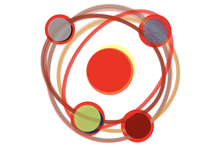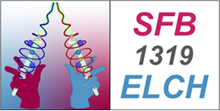Projects
Please also watch our videos about our research topics (in German only).
Perspectives of a Quantum Digital Transformation:
Near-term Quantum Computational Devices and Quantum Processors

Einstein Research Unit
P3: Controlling near-term devices
We will address the challenge of characterizing and operating near-term quantum devices using tools from mesoscopic physics and quantum control theory. We will derive the probability distributions describing the random but static uncertainties in imperfect devices and use these distributions to explore the cooperation of control and noise.
Transregional Collaborative Research Center 183 (CRC183)

funded by DFG (2020-2024)
B02: Measurement and control of open quantum matter
Research in this project will be focused on open quantum matter – many-body quantum systems where Hamiltonian and dissipative dynamical resources interplay. We will characterize these systems, study the effect of quantum measurements, and design protocols for controlling and manipulating quantum states, with particular emphasis on topological aspects.
C05: Transmon qubits
Coupled superconducting transmon circuits are one of the leading platforms in quantum information science. In this architecture, the nonlinearity of Josephson junctions serves to separate an energetically low-lying qubit subspace from a higherlying state space whose presence is generally ignored. In this project, we will go beyond this approximation and systematically investigate the role of nonlinearities and feedback of the high lying state space into the computational subspace. Specifically, we plan to explore three interrelated directions: nonlinearities as a source of error for quantum technologies, as a resource for quantum reservoir engineering in quantum networks, and as a tool-set for designing quantum simulators and engineering novel quantum phases.
Quantum-enhanced Sensing via Quantum Control (QuSCo)
Innovative Training Network

funded by the European Commission (2017-2021) and coordinated by us
Quantum technologies aim to exploit quantum coherence and entanglement, the two essential elements of quantum physics. Successful implementation of quantum technologies faces the challenge to preserve the relevant nonclassical features at the level of device operation. It is thus deeply linked to the ability to control open quantum systems. The currently closest to market quantum technologies are quantum communication and quantum sensing.
Collaborative Research Center 1319 Extreme light
for sensing and driving molecular chirality (ELCH)

funded by DFG (2018-2021)
This CRC focuses on the investigation of a microscopic quantum mechanical understanding of individual chiral molecules in the gas phase under perfectly defined experimental conditions. It employs the most advanced tools of experimental and theoretical gas phase atoms, molecular, and optical/quantum optical (AMO) physics for control and manipulation of chirality on the single-molecule level. With the help of extreme light, covering all relevant excitation regimes in terms of energy, intensity, and temporal resolution, it addresses the full chiral quantum system of electrons and nuclei in each individual molecule.
Scalable Molecular QuBits (SMolBits)

funded by the Landes-Offensive zur Entwicklung Wissenschaftlich-ökonomischer Exzellenz (LOEWE) of the State of Hesse
(2019-2022)
The main goal is the development of a new nano technology platform for the realization of strongly interacting quantum systems based on molecular quantum bits integrated on a nano photonic chip.